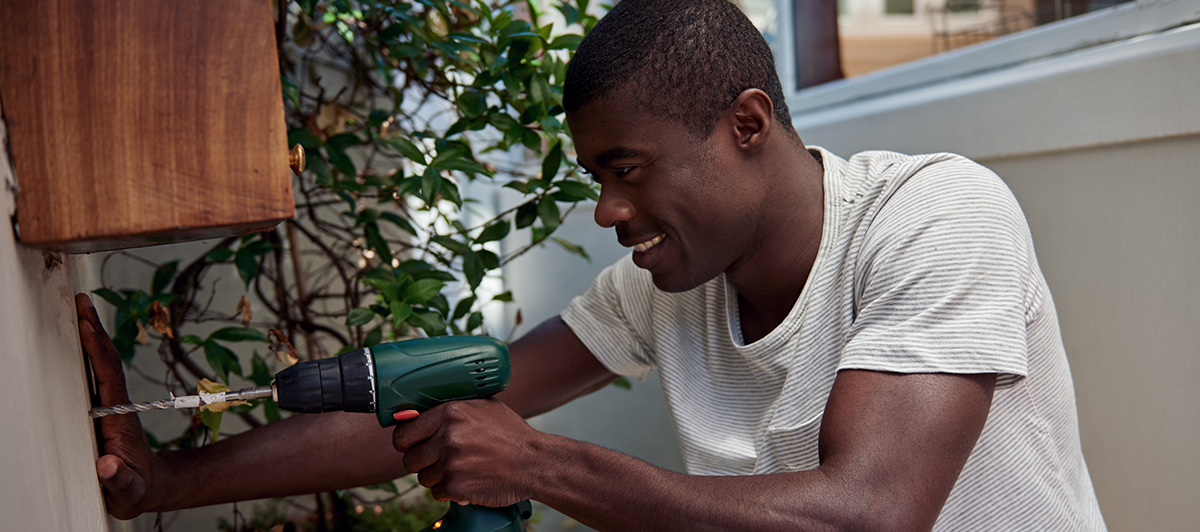
In Bermuda and across the Caribbean, hurricane season officially runs from June to November, with most storms occurring in August, September, and October. Hurricanes bring heavy rains and intense winds that can lead to costly property damage and widespread power outages. It’s important to take proactive steps to prepare your home and property ahead of hurricane season to minimise damage, keep your family safe, and avoid having to make a home insurance claim.
Make improvements to your home to protect it from hurricane damage
In Bermuda, most buildings and homes are built out of limestone or concrete blocks, making the large elements of our homes pretty resilient to hurricane damage. But other parts of your home, such as its roof, windows, blinds, and doors, might be more susceptible to damage during a severe storm. Thankfully, there are some improvements you can consider making around your home to make it as hurricane-safe as possible.
Five ways to hurricane-proof your home:
- Install permanent storm shutters on your windows, or replace glass windows and doors with hurricane rated fixtures.
- Have your roof regularly maintained by a professional, paying close attention to cracks and flat areas of the roof where water may pool.
- Make sure your garage door is hurricane-proof or impact-resistant, and reinforce it with a bracing kit to prevent it from buckling because of high winds or flying debris.
- Consider purchasing a generator to provide your home with electricity in case your power is ever knocked out during a hurricane.
- Pack away outdoor furniture and secure loose items in advance of a storm.
Prepare a home emergency kit
In the event of a hurricane,
the government of Bermuda recommends having at least three days’ worth of supplies, food, and drinking water on hand for each member of your household (including pets) in case you’re unable to leave your home.
At a minimum, your home emergency kit should include:
- Non-perishable food (e.g., canned goods with pop-tops, protein bars, dry cereals, pet food)
- Bottled drinking water
- A first aid kit
- Candles and matches or a lighter
- Battery-operated flashlights
- A battery-operated radio
- Extra batteries
- A power bank to charge your electronic devices
- Cash in case the bank is closed
- Fuel for an onsite generator
- An emergency contact list with important phone numbers (i.e., your family doctor, your local utilities providers, and your insurance company)
Prepare these items ahead of hurricane season and store them in a safe place where you’ll be able to access them easily when you need them.
Create an emergency plan and share it with your family
Ahead of hurricane season, come up with a plan for what your family will do in the event of a severe storm. Decide on a safe place in your home where your family can gather during a storm (preferably a small interior room, closet, or hallway without a window, skylight, or glass door), and consider coming up with a plan for checking in on neighbours and relatives. Remember to include pets in your plans, too.
Review your home insurance policy
While there are some proactive steps you can take to help protect your home against hurricane-related damage, if conditions are severe enough, you’ll want to be able to count on your home insurance to cover the cost of repairing damage to your home or belongings. Before a storm hits, you should review your policy and sum insured to make sure you understand your coverage and you aren’t at risk of underinsurance.
If you’re a BF&M customer, you can
review your home insurance policy online or contact our customer service team at +1 441 295 5566. We can help you adjust your sums insured or answer any other questions you may have about your coverage ahead of hurricane season.
Looking for more ways to get ready for hurricane season?
Visit our hurricane preparedness page.